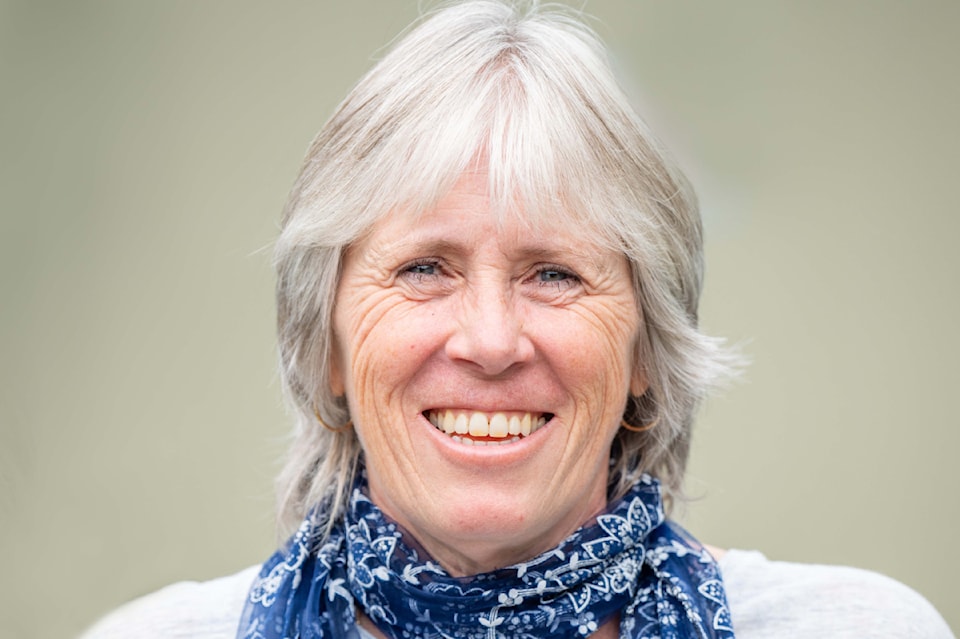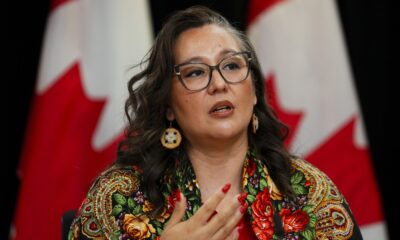Health
North Island Health Outcomes Lag Despite Economic Gains

Health outcomes on Vancouver Island’s North Island are not keeping pace with improvements in education and economic status, according to the region’s Medical Health Officer, Dr. Charmaine Enns. Speaking to Port Hardy councillors on September 9, 2023, Dr. Enns highlighted that many health issues in the area are preventable.
While the median household income for North Island residents rose from $57,000 in 2016 to $68,500 in 2021, and 65 per cent of the population holds a post-secondary certificate or degree—surpassing the provincial average of 57 per cent—health indicators present a different picture. The population of North Island is approximately 11,642.
Concerning Health Statistics
Life expectancy in the North Island stands at 75 years, significantly lower than the British Columbia average of 82 years and the Island average of 81 years. Dr. Enns attributed this disparity to several factors, including a substantially higher rate of deaths from motor vehicle accidents. Residents experience 3.9 times more fatalities from such accidents compared to others on the Island.
Dr. Enns emphasized the effectiveness of a comprehensive approach to reducing these fatalities. Communities can implement safer road designs, regulate speed limits, enhance vehicle safety, and improve land use planning. This multifaceted strategy has shown success in lowering accident rates in other regions.
Alcohol consumption is another area of concern. The North Island reports an average of 16.8 drinks per week per capita, compared to the B.C. average of 9.2 drinks and an Island average of 12.2 drinks. Additionally, smoking rates reveal troubling trends, with 7.7 per cent of residents smoking daily. Notably, 14 per cent of female smokers reported continuing to smoke during pregnancy, compared to an Island average of 6.8 per cent and a B.C. average of 4.1 per cent.
High school completion rates in the North Island also lag, with only 68 per cent of students graduating in 2023, while the Island average is 86 per cent and the B.C. average is 92 per cent.
Pathways to Improvement
Despite these challenges, there are signs of hope. Hospital admissions related to opioid use are on the decline and remain below the Island average. Dr. Enns noted that many of the troubling statistics, including lower life expectancy, substance abuse, and educational challenges, stem from preventable factors.
“These trajectories can be reversed,” Dr. Enns stated. “Supporting early childhood development lays the groundwork for lifelong health and wellbeing, helping prevent negative health outcomes late in life.”
The full presentation by Dr. Enns can be accessed on the Port Hardy council’s YouTube channel, providing further insights into the health trends affecting the community.
Efforts to enhance health outcomes in the North Island will require collaboration among local leaders, health professionals, and community members, all focused on the shared goal of improving the well-being of the region’s residents.
-

 Politics4 weeks ago
Politics4 weeks agoSecwepemc First Nation Seeks Aboriginal Title Over Kamloops Area
-

 World5 months ago
World5 months agoScientists Unearth Ancient Antarctic Ice to Unlock Climate Secrets
-

 Entertainment5 months ago
Entertainment5 months agoTrump and McCormick to Announce $70 Billion Energy Investments
-

 Science5 months ago
Science5 months agoFour Astronauts Return to Earth After International Space Station Mission
-

 Lifestyle5 months ago
Lifestyle5 months agoTransLink Launches Food Truck Program to Boost Revenue in Vancouver
-

 Technology3 months ago
Technology3 months agoApple Notes Enhances Functionality with Markdown Support in macOS 26
-

 Lifestyle3 months ago
Lifestyle3 months agoManitoba’s Burger Champion Shines Again Amid Dining Innovations
-

 Top Stories2 months ago
Top Stories2 months agoUrgent Update: Fatal Crash on Highway 99 Claims Life of Pitt Meadows Man
-

 Politics4 months ago
Politics4 months agoUkrainian Tennis Star Elina Svitolina Faces Death Threats Online
-

 Sports5 months ago
Sports5 months agoSearch Underway for Missing Hunter Amid Hokkaido Bear Emergency
-

 Politics5 months ago
Politics5 months agoCarney Engages First Nations Leaders at Development Law Summit
-

 Technology5 months ago
Technology5 months agoFrosthaven Launches Early Access on July 31, 2025





















